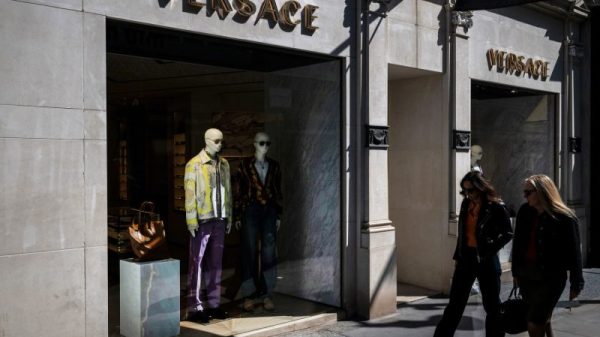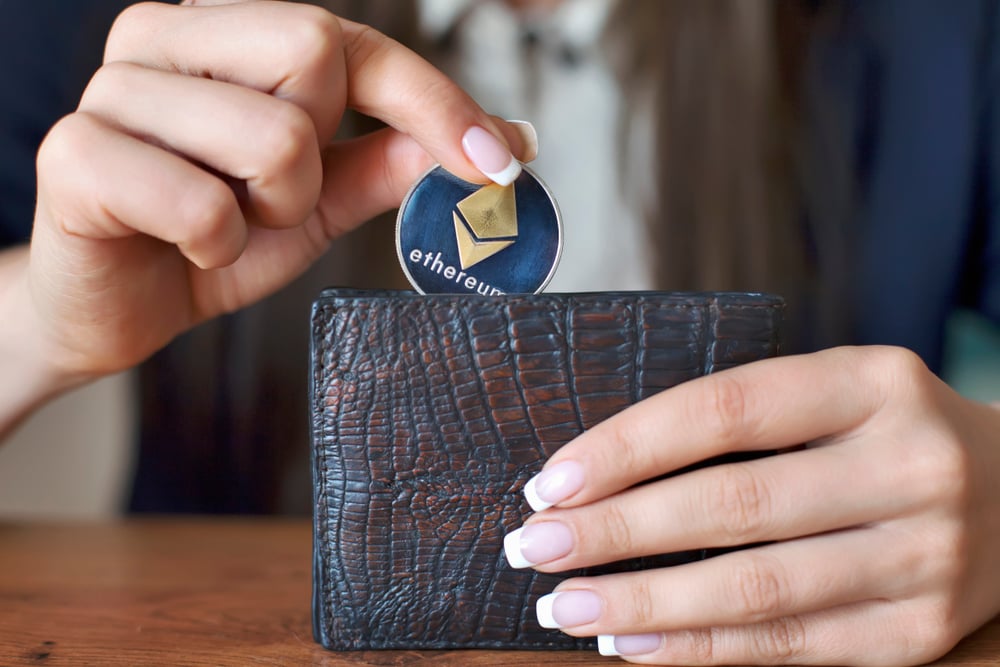A Comprehensive Guide To Creating Crypto Wallets In The UK
Trading cryptocurrencies has gained prominence among both experienced investors and newcomers to digital currencies. Crypto wallets play an essential role in this process, securely storing digital assets and being crucial for managing investments.
Crypto wallets are often misunderstood, particularly by newcomers to the cryptocurrency space. Many mistakenly view them as simple digital containers for storing cryptocurrencies. However, understanding the true nature of crypto wallets is crucial, especially in the UK, as it directly impacts the security of investors’ digital assets.
Traditional currencies are held in physical wallets or bank accounts managed by central authorities. Cryptocurrencies, however, function on a decentralised blockchain network. Blockchain’s distributed ledger technology eliminates intermediaries, offering greater transparency and security. This unique setup requires specific solutions to store and manage digital assets while not having to deal with the boundaries of a physical wallet.
A crypto wallet functions as a secure digital interface for your cryptocurrency assets. Rather than directly storing the cryptocurrency, it safeguards the vital keys necessary to access your funds on the blockchain. This system’s security hinges on two essential components: private and public keys. Let’s explore these elements in more detail.
This guide aims to demystify the complexities of cryptocurrency wallets. By understanding their function and features, we’ll be better equipped to choose the most suitable crypto wallet for our needs in the UK, enabling us to make informed and prudent trading decisions.
Grasping The Concept Of Crypto Wallets: The Very Basics
First, it is critical to recognise that cryptocurrencies like Bitcoin and Ethereum are not physical entities. Therefore, there are no minted coins, printed notes, or digital files equivalent to physical cash. Crypto assets exist solely as records on distributed computer ledgers, meaning they are merely entries proving ownership of a particular cryptocurrency.
This concept is similar to a bank balance, which represents the money a bank must provide on demand. It isn’t a physical pile of cash stored in a vault. An investor uses their debit card details, PIN, or account to access these funds and sort code.
A crypto wallet doesn’t actually contain the cryptocurrency itself. Instead, it stores a pair of cryptographic keys. These keys comprise extensive sequences of numbers and letters designed to be virtually unguessable.
Investors need both public and private keys to use their crypto assets, whether for trading or making purchases. These keys enable the digital signing and authorisation of transactions linked to their crypto address. Secure storage in a crypto wallet is essential because possession of these keys allows full control over the crypto holdings.
The public key functions similarly to a postal address or a bank account number. It needs to be shared whenever the investor wants to receive a deposit. The private key, on the other hand, appears in the wallet and remains confidential as it unlocks the transactions sent to the public key.
A popular saying in the crypto community highlights the necessity of securing these keys: “Not your keys, not your coins.”
Types Of Wallets: Which Crypto Wallet Is Best In The UK?
Crypto wallets secure the essential pair of keys required to access, spend, or trade cryptocurrency assets. These wallets come in various types, each with its own set of advantages and disadvantages. Let’s look at the wallet types:
Hot Crypto Wallet
Hot wallets, which operate online, can be classified as custodial or non-custodial. Crypto exchanges provide custodial hot wallets where traders buy their cryptocurrencies.
Using a custodial hot wallet is straightforward, requiring only a login to the exchange account, which makes it a convenient option for storing keys.
However, both custodial and non-custodial hot wallets face significant security risks. They are frequent targets for hackers, with numerous crypto exchanges experiencing breaches and substantial amounts of cryptocurrency being stolen.
In response to these breaches, exchanges have worked to enhance their security measures. Despite these efforts, hackers continue to find new ways to exploit vulnerabilities.
Cold Crypto Wallet
A cold wallet is a type of cryptocurrency wallet that remains disconnected from the internet and does not interact with smart contracts. This lack of online connectivity shields it from digital threats such as malware and spyware. Additionally, cold wallets prevent unauthorized access and malicious transactions by staying separate from smart contracts. Essentially, cold wallets are designed for secure asset storage and transfer.
‘Cold wallet’ and ‘hardware wallet’ are often used interchangeably, but this is a misconception. While cold wallets come in various forms, not all hardware wallets fall into the cold wallet category.
Cold wallets are ideal for long-term storage of valuable cryptographic assets due to their enhanced security features. They keep your keys offline, which guards against on-chain threats. Let’s explore how these security features function.
Hardware And Paper Wallets
Hardware wallets are physical devices that use a PIN to protect private keys and connect to a computer to authorize transactions. Their design aims to provide enhanced security by avoiding constant internet connections and using a PIN for access control.
Nonetheless, risks arise when users connect hardware wallets to a computer with internet access, potentially exposing their wallet to breaches if the computer lacks adequate security.
In contrast, a paper wallet generates public and private keys through a key generator program. These keys are printed on paper, often accompanied by QR codes. Despite their immunity to digital hacking, paper wallets have notable disadvantages. Paper can be challenging to keep secure and intact. Besides, there’s the risk of using a compromised key generator. Additionally, someone with access to the camera used for scanning QR codes could potentially steal the keys.
Regardless of the chosen wallet type, users must prioritise their security. Effective measures include verifying link destinations before clicking, avoiding emails from unknown sources, and carefully evaluating online offers that seem overly advantageous before taking any action.
More Than Safe Storage: Essentials Of Your Wallet
Crypto wallets do much more than just secure your digital assets. They serve as a central platform for managing your entire cryptocurrency portfolio within one application, eliminating the hassle of using different platforms for various coins and tokens.
By holding your private keys directly, a crypto wallet grants you full control over your financial assets, ensuring you can access and manage them alone. Sending and receiving cryptocurrency becomes seamless, facilitating transactions through user-friendly public key addresses. In some cases, it allows a simpler process of sending funds, such as using a username instead of a lengthy string of characters.
Your crypto wallet also provides access to decentralised finance (DeFi). It allows you to interact with a range of decentralised applications (dApps) and explore new financial services. Furthermore, you can use your wallet to spend cryptocurrency directly at businesses that accept it, supporting the shift toward a more digital financial future.
How To Start Trading Using Your Wallet
To store your precious cryptocurrency keys, you need to figure out how to get a crypto wallet. Start by choosing a cryptocurrency wallet that aligns with your trading needs, security preferences, and the types of cryptocurrencies you plan to trade.
Next, evaluate wallets based on the variety of digital assets they support and their security features. After selecting a wallet, you need to determine how to set up a crypto wallet. Put supplementary care into the security aspect. You may need to enhance the wallet’s safety by enabling features such as two-factor authentication. Besides, creating a secure backup of the wallet’s recovery phase is extremely beneficial to prevent data loss.
Now, you can obtain cryptocurrency through a reputable exchange or receive it from another person. Only after that you can transfer these assets into your wallet to keep them secure.
Select a reliable cryptocurrency exchange or trading platform that supports your cryptocurrencies and offers the trading features you need, such as advanced order types, comprehensive charting tools, and up-to-date market information. Confirm that the platform has a solid reputation for security and customer support.
Once you’ve transferred the cryptocurrency from your wallet to the exchange account, begin trading according to your market analysis and trading strategy. Continuously monitor market conditions and adjust your strategy as necessary to achieve the best trading results.
The post A Comprehensive Guide to Creating Crypto Wallet UK appeared first on FinanceBrokerage.






































